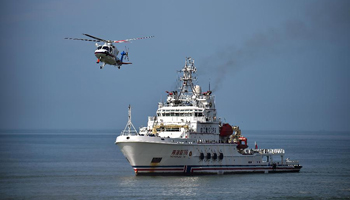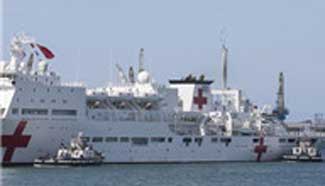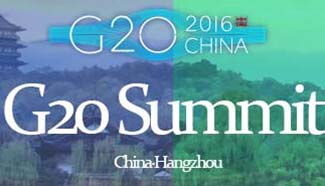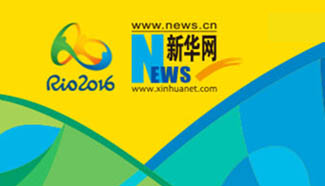CARACAS, Aug. 23 (Xinhua) -- Iran's Foreign Minister Mohammad Javad Zarif is on a six-nation tour to Latin America in a bid to bolster economic ties with countries in the region, months after an internationally-brokered nuclear agreement helped lift economic sanctions against it.
"It's logical that since the embargo (against Iran) has been lifted, it is seeking to expand" economic ties, Georges Zade, an author and commentator on Middle East affairs, has told Xinhua in an interview.
The Middle East's fractured political, cultural and religious landscape, which pits the Sunni Arab states of the Persian Gulf, led by the stalwart U.S. ally Saudi Arabia, against Shiite Iran, also limits Iran's ability to expand economic relations in its region, Zade noted.
Differences "are shutting (Iran) out of its natural market, such as what comprised the Gulf states," he added.
Zarif's Latin American tour has so far taken him to Cuba and Nicaragua, with Chile, Bolivia, Ecuador and Venezuela as the next stops. Venezuela is the country in Latin America that has the strongest ties with Iran, based on political affinity.
As oil exporters, Iran and Venezuela are members of the Organization of the Petroleum Exporting Countries (OPEC), as well as the non-aligned movement. Both of them have struggled to free themselves from a U.S. dominance.
In April, Zarif's Venezuelan counterpart Delcy Rodriguez traveled to Iran, as part of Venezuela's efforts to bolster bilateral economic, financial and trade cooperation.
Since 2006, under the leadership of then President Hugo Chavez, the two countries have signed some 300 deals on cooperation.
For Iran, there is still potential for trade exchange and cooperation, not just with Venezuela, Zade said.
"Iran maintains excellent diplomatic ties with all of the countries included in the tour, with the only exception of Chile, "said Zade, adding that, however, its trade exchange with them is very limited.
Zade expects the countries will benefit from Iran's technological development.
In his opinion, "the embargo imposed by the West has failed to get Iran to buckle under, and in spite of it, or because of it, that country has achieved advances in technology to boost its industrialization."
"We can say that to a certain degree, Iran became self-sufficient, and with so much progress it needs to expand its market and, at the same time the trade exchange with other countries," said Zade.
As regards the exclusion from Zarif's trip of Brazil and Argentina, both Latin America's largest economies, Zade reckons it may be because the two countries are worried about annoying the United States and Iran.
Soon after being elected to office in August 2013, Iranian President Hassan Rouhani signalled that Latin America would be a diplomatic priority for his administration, the same as it was during the term of his predecessor Mahmoud Ahmadinejad.
Zarif is accompanied in the Latin America tour by a business delegation of figures from private and public sectors covering fields ranging from petrochemicals, mining, medicine, automobiles to agriculture and engineering.










